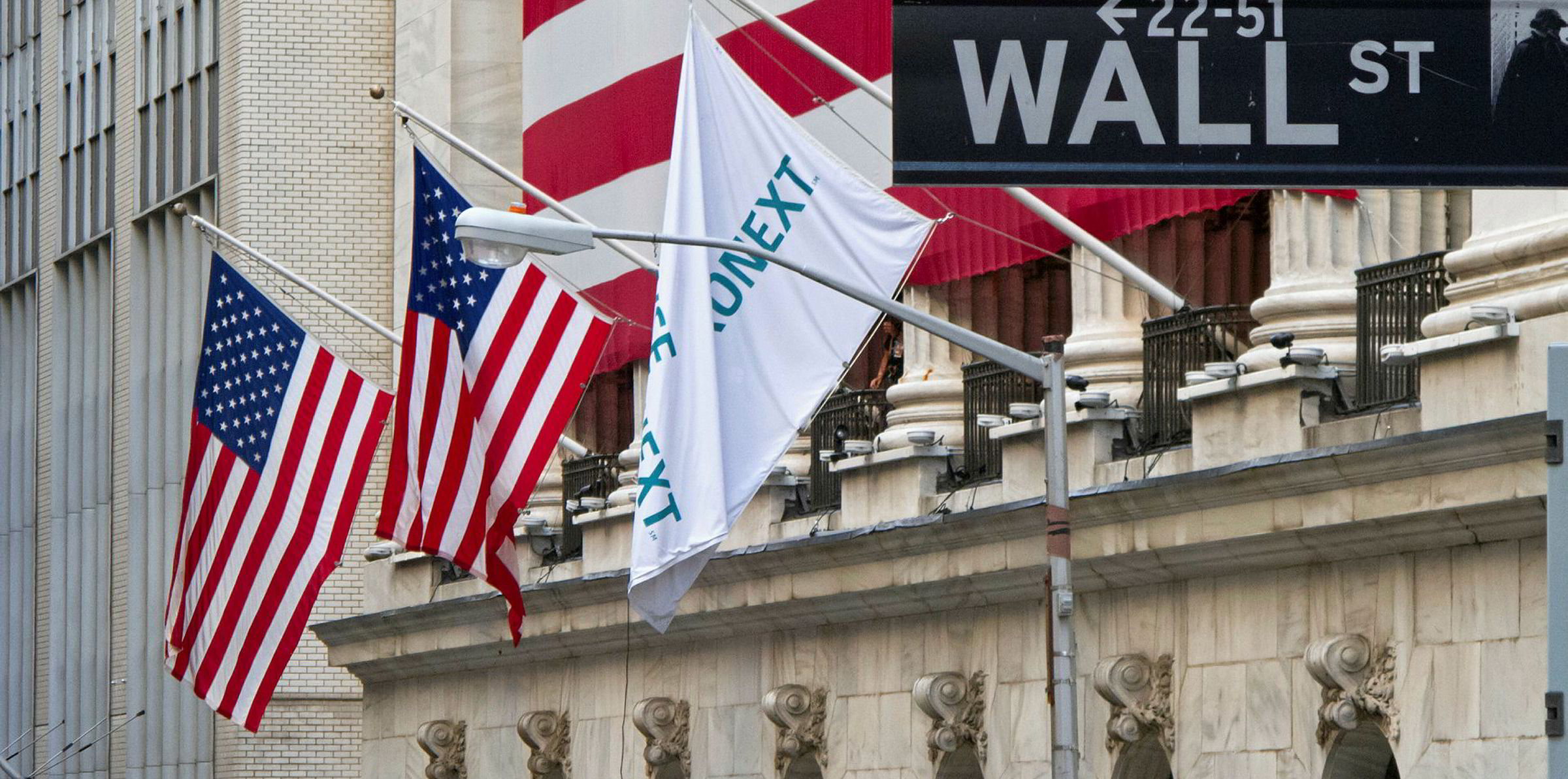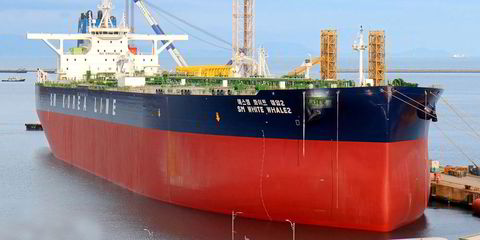Dry bulk shipowners saw freight rates lift substantially out of trough levels last week, but one would never know it by performance of publicly traded shares in New York.
Even as capesize rates soared 70% in a week, the seven dry bulk owners under coverage of US investment bank Jefferies fell 8%, with all seven losing ground.
It appeared to be one of those weeks in which shipping stocks were rag-dolled by the broader market, as the Dow Jones Industrial Average had its worse five days since March, tumbling 7%.
“Shipping stocks were very much pulled down by the selloff in the overall stock market,” Jefferies lead shipping analyst Randy Giveans said.
“The strong risk-on rally switched to risk-off this past week, primarily on ongoing Covid-19 concerns, a possible second wave, and a slower than expected economic recovery.”
Looking to the week ahead, Giveans said he sees reasons to watch development in both the wet and dry sides.
“What happens with the price of crude oil, specifically in terms of Libya’s on-again off-again production and inventory levels?” he asked, before pivoting to dry bulk.
He added that “the duration and degree of the dry bulk rate rally in terms of Chinese steel mill activity, iron ore inventories and Brazilian iron ore exports” are all areas to watch.
The maritime listings had their first overall losing week in a month, with 26 of Jefferies' 30 stocks losing ground, and an average drop of 6.6%.
On the dry side, Giveans pointed to the poor performance of Scorpio Bulkers, which plummeted 21% on the week after a surprise follow-on shares sale worth $76m.
That made Scorpio the biggest price loser on the week.
The equity issuance was praised in some quarters for providing the Emanuele Lauro-led owner with enough liquidity to get through even the most protracted of market droughts.
But it was equally denounced for the dilution to existing shareholders, as the new shares added 59% to shares outstanding and came at perhaps 50% of net asset value.
Scorpio did manage to close the week at $18.49, up slightly from the $18.46 deal price, and potentially setting the table for at least a partial exercise over the underwriters’ 15% over allotment option.
However, Scorpio was not just the only one struggling as the best-trading dry bulk option was Connecticut owner Eagle Bulk Shipping, with a 2.9% loss.
The top performer on the week was Dynagas LNG Partners with a 18.8% gain.
Three mainstream tanker companies followed in green numbers: retail favourite Nordic American Tankers at 3.4%, DHT Holdings up 0.3% after adding investment giant Fidelity as a 10% buyer, and Euronav squeezing out a 0.2% climb.
Tankers were the best performing sector, but with a 5% overall drop.
“Rates were mixed, but the bigger driver was the extension of OPEC+ cuts through July,” Giveans said, referring to the oil cartel’s agreement to extend historic production pullbacks throughout July, a damper for tankers.
LNG carriers lost 6% on the week, with GasLog Partners dropping 19%, while LPG carriers reversed last week’s gains with a 7% drop.
Containerships brought up the rear with a 9% decline.








